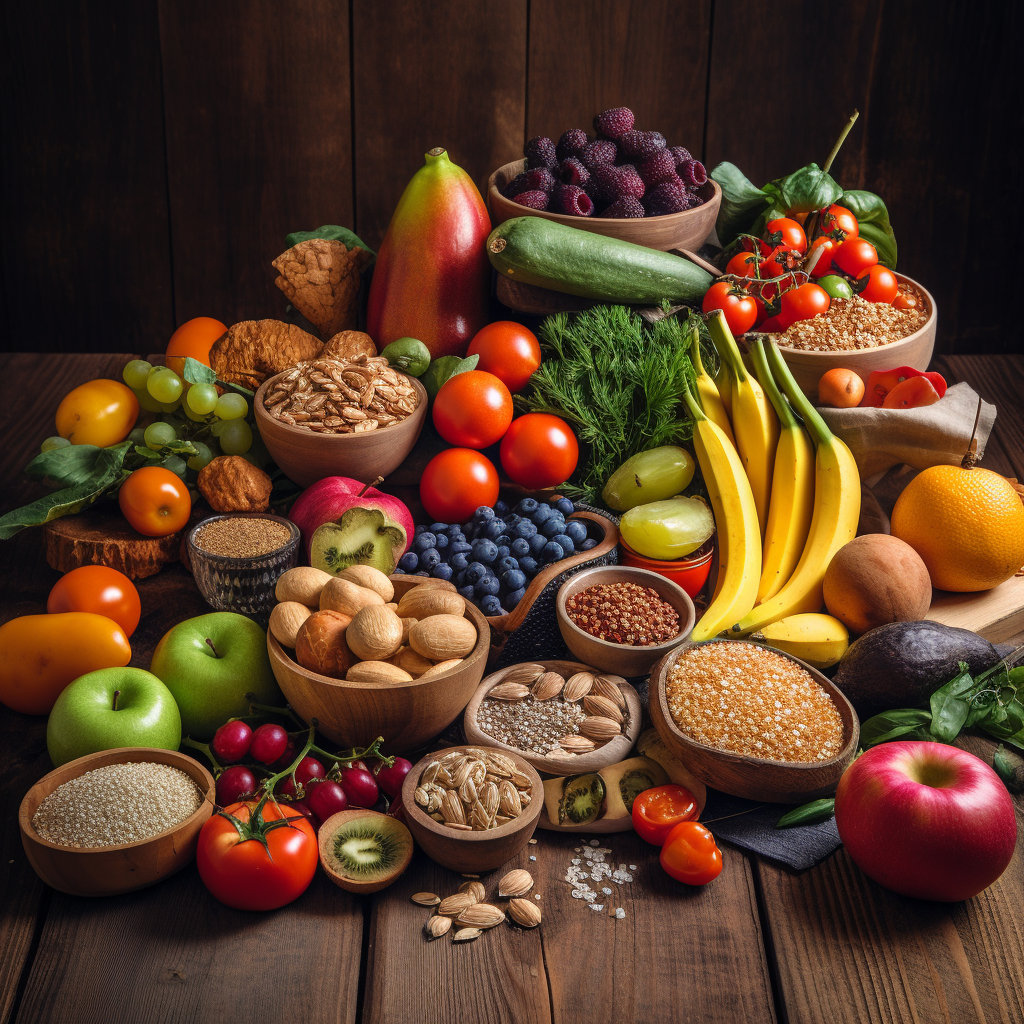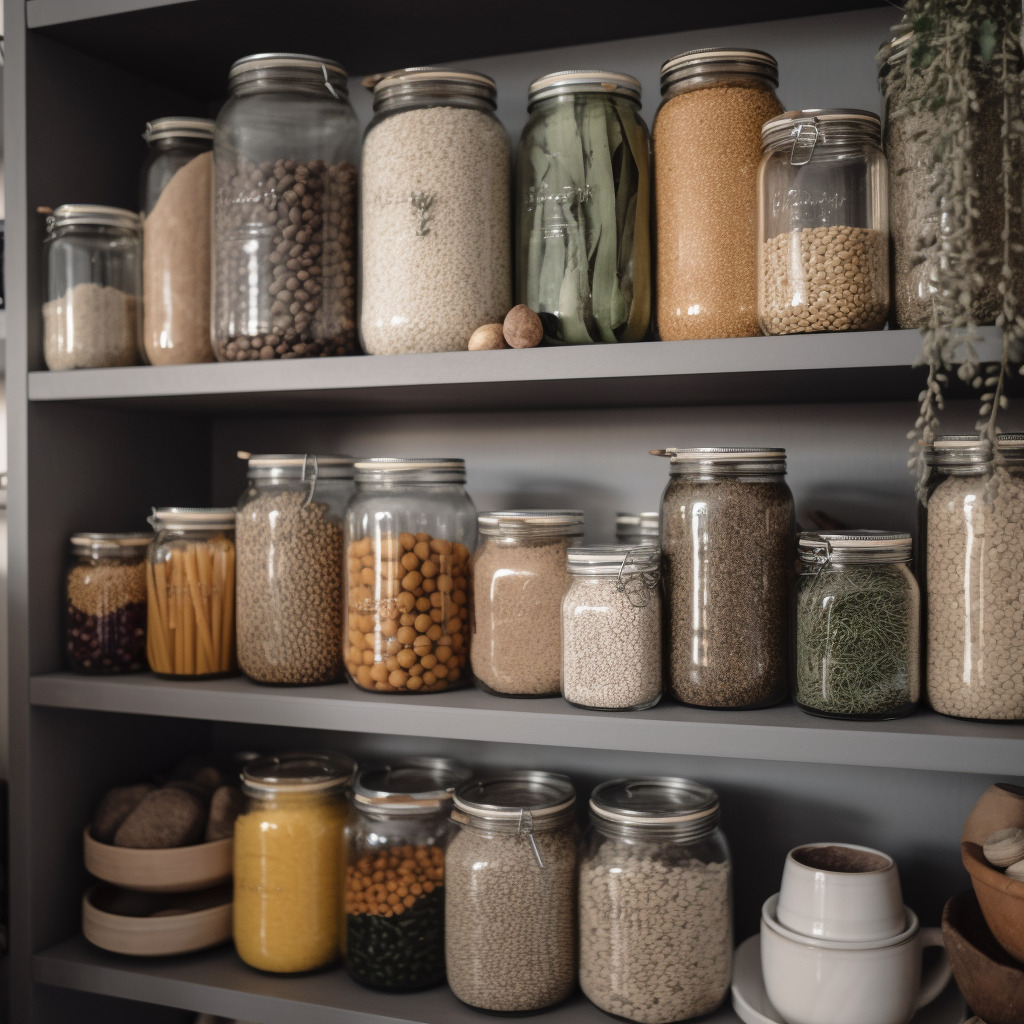Venturing into the Green: Your Affordable Guide to Plant-Based Living

Hey there, health-enthusiast! Let’s explore the bright, economical world of plant-based nutrition. This is your on-the-go handbook to a plant-based diet — an enticing blend of measurable health benefits, robust flavors, and sustainability, all without breaking the bank. Let’s clarify the basics: a plant-based diet emphasizes consumption of fruits, vegetables, whole grains, legumes and seeds, and recommends limiting or eliminating animal-based products.
Why Go Plant-Based?
In an era plagued by spiraling food prices, financial constraints, and health dilemmas, this series will guide you on a journey to an affordable and nutrition-rich plant-based regimen. With our handy tips, you’ll discover delicious recipes, benefit from nature’s abundance, and indirectly contribute to sustainability. Whether you’re a time-pressed parent, a student surviving on a shoestring budget or a fledgling entrepreneur (as discussed over at r/personalfinance), we have you covered with actionable tips, tempting recipes, and morale-boosting advice. So dust off your favorite apron and let’s embrace frugal, flavorful, plant-based eating!
Unraveling the Myth: Wholesome Eating = Heavy Spendings

A popular misconception is that a healthy diet equals empty pockets. Fortunately, particularly with a pivot towards plant-based fare, it’s not always the case. Although esteemed plant-based items like quinoa or chia seeds may appear pricey, primary foods of a plant-based diet — beans, grains, and vegetables — are substantially cheaper compared to animal products. Savings come with smart shopping and meal preparation. Buy in bulk, select frozen or canned produce, and opt for store-brand items whenever possible, as indicated by the CDC. Home-cooking not only gives you dietary control but also reduces the cost of dining out. Harvard’s School of Public Health postulates that healthier meals cost approximately just $1.48 more per day. That equates to a surprising additional weekly expense of around $10, which seems reasonable considering the long-term health benefits. Cheaper protein alternatives (like beans and lentils), coupled with seasonal or locally grown fruits and vegetables, contribute massively toward savings. Thus, it’s safe to say a plant-based diet shatters the widely-held notion that health and budget cannot coexist.
Inside a Frugal Plant-Based Kitchen
Embracing a plant-based diet doesn’t necessitate spending more on exotic produce or pricy substitutes. In reality, plant-based staples are often less expensive and longer-lasting, providing equal nutritional value compared to animal-sourced produce.

Plant-Based Staples and Cost Comparison
Ever wondered if plant-based nutrition could be wallet-friendly? A simple walkthrough of your local grocery store can be highly insightful. Staples such as beans, legumes, and whole grains, along with a wide array of fruits and vegetables, are often less expensive than equivalent servings of meat and dairy. For example, a pound of dried lentils costs around $1.50 and serves as a wholesome base for several meals, offering heart-healthy fiber and protein. In comparison, a pound of chicken often costs upwards of $3.27. Stay tuned for more tips and tricks as we continue our journey through plant-based living on a budget!
The Longevity of Plant-Based Pantry Staples

Keeping a well-stocked plant-based pantry offers several perks due to the long shelf life of many plant-based foods. Rice, quinoa, lentils, and preserved fruits and vegetables (frozen or canned) can all keep for many months, sometimes years. This longevity minimizes food waste, stretching your budget further. And in the time of a pandemic, fewer grocery trips offer a welcome advantage.
Embracing the DIY Approach with Plant-Based Foods

Even as the market expands with ready-to-eat plant-based foods, choosing to cook from scratch remains a smart strategy for budget-conscious individuals. Home-cooked meals, prepared with simple and economical plant-based ingredients like canned chickpeas or seasonal vegetables, can save you a fair bit of money over time. Unlock the potential of your plant-based kitchen without spending more – you just need to adjust your viewpoints and explore the versatile nature of plant-based food.
Mastering the Art of Meal Planning
The saying “Failing to plan is planning to fail” is particularly spot-on when it comes to budget-friendly and healthy eating. Effective meal planning unfolds significant savings, reduces waste, and brings added health benefits. Here are your keys to successful meal planning:
Whole Foods Over Processed Alternatives
Fill your pantry with a variety of fruits, vegetables, grains, and legumes. These whole foods are not only packed full of nutrients but are usually cheaper than their meat and processed counterparts, like a can of beans – nourishing, affordable, and flexible for numerous meals.
Develop a Weekly Menu
Create a menu for the week that incorporates a mix of affordable and enjoyable meals and snacks. Avoid the lure of fancy dishes requiring costly or exotic ingredients.
Shop Smart
A well-planned menu guides the creation of an efficient shopping list. It aids in avoiding unnecessary items and curbing impulse buying – the key factor in saving money on your grocery shopping.
Buy in Bulk and Cook in Batches
Procure non-perishable items in bulk to save money and time later on. This strategy works well with a plant-based diet, which largely depends upon pantry staples. Similarly, batch cooking or meal prepping saves you time, assuring a steady flow of healthy meals on busy days.
Be Flexible and Creative
While a plan is important, versatility keeps things interesting. Adapt your meal planning to accommodate for leftovers, cravings, or changes due to weekly special deals at your grocery store. Keep it fun and frugal, and you’ll find yourself embracing the diverse cuisine of your plant-based dieting. Taking a balanced view, meal planning helps manage your budget without compromising on taste or nutrition. But the perks of a plant-based diet extend beyond just a healthier wallet. It’s a lifestyle choice with wider impacts on personal health and environmental sustainability.
The Extended Benefits of a Plant-Based Lifestyle

Here are three broader impacts of a plant-based diet beyond your personal budget:
- Health Impact: A balanced plant-based diet is packed with fruits, vegetables, whole grains, legumes, and lean proteins – a nutrient-rich profile praised by health organizations for promoting general health and defending against chronic diseases.
- Environmental Impact: Choosing a plant-based diet significantly reduces our environment footprints, helping counteract the damaging effects linked to meat and dairy production.
- Community and Economic Impact: Sourcing your produce from local farmers’ markets can support your local economy, provide fresh and inexpensive food, and introduce you to novel culinary inspirations. Envision the four ‘E’s of plant-based eating: It’s Economical, Environmentally-friendly, Enhances Health, and Encourages the local Economy. Let’s delve a bit deeper into the health perks of plant-based eating.
Managing Weight with a Plant-Based Pantry
Maintaining a well-stocked plant-based pantry offers health benefits, one of which includes weight management. Plant-based foods are usually less calorie-dense, allowing you to feel satiated without significant caloric intake, contributing to maintaining a steady weight.
Boosting Health with Plant-Based Foods
Many health advantages come with a plant-based dietary plan. Lowering the risks of chronic illnesses, such as heart disease, diabetes, and certain cancers, is a standout trait, as shared in this study. Furthermore, plant-based diets offer a boon to our heart and kidneys. The high fiber content in plants helps lower cholesterol while potassium-rich fruits and vegetables promote better kidney function and naturally regulate blood pressure. On the digestive front, a plant-heavy diet is a powerhouse. Dietary fiber aids with bowel regularity and benefits gut microbiota, leading to improved digestion, immunity, and overall mood. What’s more, a plant-based diet leans towards whole foods over heavily processed ones, notoriously high in unhealthy fats, sugars, and sodium. Therefore, a plant-based diet is an effective strategy to keep harmful ingredients at bay. Indeed, a plant-based lifestyle encapsulates health benefits, sustainability, and budget-friendliness, serving as a testament that good health and wallet-friendliness can coexist.
Budget and Environmental Benefits of a Plant-Based Diet
Forbes suggests smart shopping strategies like buying in bulk, opting for store brand items, picking seasonal produce and scouring for deals at farmers’ markets. These tactics can stretch your budget while ensuring a nutrient-rich diet, proving a plant-based diet as a win-win. Research indicates that adopting a more plant-based dietary habits also supports environmental sustainability. According to a study published in the journal Nature Food, the environmental impact is significantly lower for plant-based diets as they require less land, water, and energy for production. Choosing plant-based options also supports water conservation, habitat conservation and biodiversity. This reduces the demand for farmland and decreases deforestation due to livestock breeding.
Savory the Benefits of a Plant-Based Diet
A wholesome plant-based diet paves the way for a wholesome life, extending benefits for your health, wallet, and the environment. If you’re on a journey to health and budget-friendliness, a plant-based diet could serve as a match made in heaven. It proves efficient at minimizing grocery bills, managing health disorders, and promoting environmental sustainability. Harvard’s The Nutrition Source notes that smart shopping and meal planning techniques can put healthier options within an arm’s reach. Remember, your choices matter, for your body, your wallet, and the planet, making a shift towards a more plant-based diet an investment worth indulging. What are your favourite budget-friendly, plant-based recipes?
Do you have shopping tips that save money? Share your experiences and let’s work towards making healthy eating budget-friendly! Delving into the world of plant-based eating can be an exciting journey – a dual investment in personal health and the well-being of our beautiful planet. Just remember, as the MyPlate initiative wisely advises, “Small changes can make a big difference to your health.” As you experiment with plant-based foods and flavors, you’ll not only be actively investing in your personal health but also contributing positively to the planet’s welfare. Why wait for a new year or another Monday to start?
Launch your plant-based journey today, and let each meal be not just an act of nourishment but also a statement of care – for yourself and your surroundings. By the end of these changes, you’ll notice how small shifts can lead to substantial savings in terms of health and finances. So raise a glass (or a bowl of super salad) to celebrate the wholesome changes you’re about to bring into your life. Welcome to a world of plant-based eating! And with that, we conclude our series on embracing a plant-based lifestyle. We hope you found this journey enlightening and inspirational. Do stick around for more informational and inspiring content. Because, when it comes to effecting change, knowledge isn’t just power – it’s fuel for the journey.
